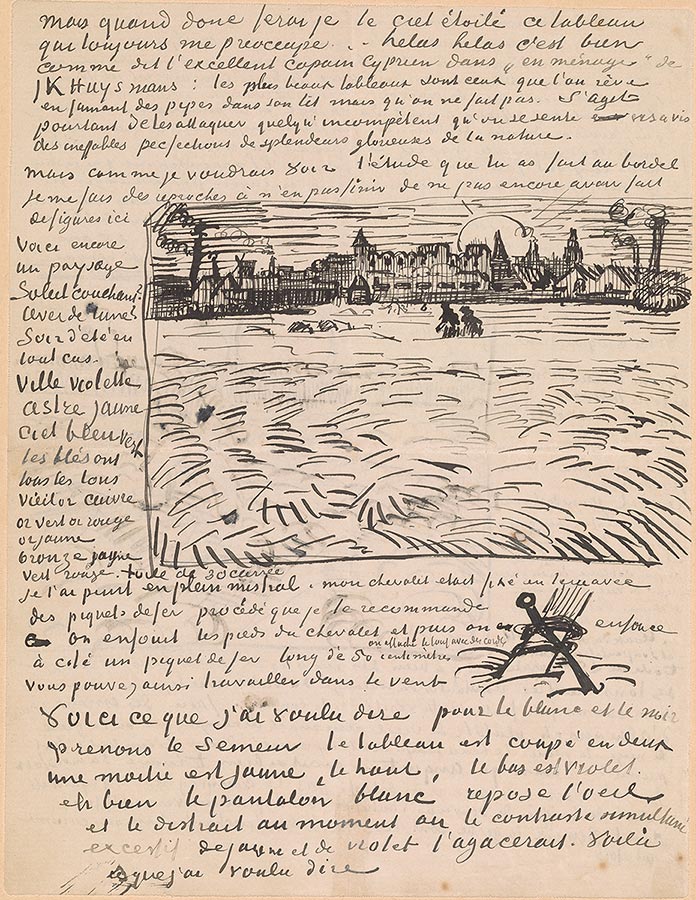
Vincent van Gogh, letter to Émile Bernard, Arles, 19 June 1888, Letter 7, page 2
Wheatfield with setting sun); Leg of an easel with a ground spike
Thaw Collection, given in honor of Charles E. Pierce, Jr., 2007
I don't hide from you that I don't detest the countryside—having been brought up there, snatches of memories from past times, yearnings for that infinite of which the sower, the sheaf, are the symbols, still enchant me as before.
But when will I do the starry sky, then, that painting that's always on my mind? Alas, alas, it's just as our excellent pal Cyprien says, in "En ménage" by J. K. Huysmans, the most beautiful paintings are those one dreams of while smoking a pipe in one's bed but which one doesn't make. But it's a matter of attacking them nevertheless, however incompetent one may feel vis-à-vis the ineffable perfections of nature's glorious splendors.
But how I should like to see the study you did at the brothel. I reproach myself endlessly for not having done figures here yet. Here's another landscape.11 Setting sun? Moonrise? Summer evening, at any rate.
Town violet, star yellow, sky blue green; the wheat fields have all the tones: old gold, copper, green gold, red gold, yellow gold, green, red and yellow bronze. Square no. 30 canvas.
I painted it out in the mistral. My easel was fixed in the ground with iron pegs, a method that I recommend to you. You shove the feet of the easel in and then you push a 50-centimeter-long iron peg in beside them. You tie everything together with ropes; that way you can work in the wind.
Here's what I wanted to say about the white and the black. Let's take the Sower. The painting is divided into two; one half is yellow, the top; the bottom is violet. Well, the white trousers rest the eye and distract it just when the excessive simultaneous contrast of yellow and violet would annoy it. That's what I wanted to say.
© 2007 Van Gogh Museum, Amsterdam
